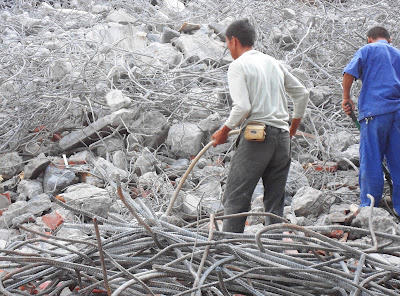Protect Your Health and Property with Professional Abatement Testing in New Jersey
The Importance of Abatement Testing
Abatement testing is an essential part of the process of removing hazardous materials, such as asbestos, from buildings in New Jersey. Hazardous materials can cause serious health problems, including lung cancer, mesothelioma, and other respiratory diseases. Asbestos-containing materials, in particular, are a concern because they were commonly used in buildings constructed before 1980.
Abatement testing involves taking samples of materials suspected to contain hazardous materials, such as asbestos, and analyzing them in a laboratory to determine if they contain any hazardous materials. This testing is essential to identify any potential hazards before abatement work begins and to ensure that the abatement is effective in removing all hazardous materials.
The Process of Abatement Testing
The process of abatement testing involves several steps:
Inspection:
A certified inspector will visually inspect the building and identify any areas that may contain hazardous materials.
Sampling:
Samples are taken from these areas and analyzed in a laboratory to determine the presence and extent of hazardous materials.
Report:
A detailed report is provided that outlines the results of the testing, including the location and extent of hazardous materials.
Recommendations:
Recommendations are provided for the safe and effective removal of any hazardous materials found.
Benefits of Professional Abatement Testing
Professional abatement testing in New Jersey offers several benefits, including:
Protecting the health of occupants and workers by identifying and removing hazardous materials
Ensuring compliance with state and federal regulations regarding hazardous materials removal
Preserving the value of the property by ensuring that it is free of hazardous materials
Choosing a Professional Abatement Testing Company
When choosing a professional abatement testing company in New Jersey, it is important to look for a company with:
Experienced and certified inspectors
State-of-the-art equipment and testing methods
Comprehensive reporting and recommendations
Accreditation from a recognized organization, such as the National Voluntary Laboratory Accreditation Program (NVLAP)
FAQs
What types of hazardous materials are commonly found in buildings?
Asbestos, lead, mold, and PCBs are commonly found in buildings.
Is abatement testing required by law in New Jersey?
Yes, abatement testing is required by law in New Jersey before any hazardous materials removal work can be done.
How long does abatement testing take?
The duration of abatement testing depends on the size and complexity of the building, but typically takes a few days to complete.
Conclusion
Professional abatement testing in New Jersey is essential to protect the health of occupants and workers, ensure compliance with state and federal regulations, and preserve the value of the property. By choosing a professional abatement testing company with experienced inspectors, state-of-the-art equipment, and comprehensive reporting, you can ensure that any hazardous materials are identified and removed safely and effectively.


Comments
Post a Comment